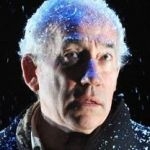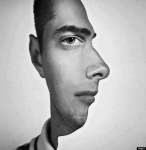Do you have obstructive sleep apnea? What is your BMI?Minky wrote:I do!
Actually, I don't have 32 teeth. I have 33 uncrowded teeth. No dentist has ever suggested orthodontics or removing my wisdom teeth because it would be unnecessary surgery.
support research on sleep apnea
Re: support research on sleep apnea
Sheffey
Re: support research on sleep apnea
See the work of Weston A. Price, a dentist who first posited this theory. I don't agree with everything the WAP Foundation espouses (I refuse to give them any money which would support their anti-vax stance) but there's a lot of credence to his dental and nutrition theories.bmd wrote:Sorry, Julie. I certainly did not mean to make anyone feel abnormal. The point is that much of the variability in jaw structure is not actually caused by genetics. It is caused by early childhood diet, and is therefore preventable. There are societies in which malocclusion is rare and sleep apnea is almost unheard of, and they are not genetically different from societies like ours in which many people have sleep apnea. The difference is that they eat a different diet. If we could figure out exactly which components of diet make the most difference, we might be able to achieve freedom from sleep apnea in our own society as well. See the links in the comments section for more details on that. Wouldn't it be wonderful if every child could grow up with a perfect jaw and never have to develop sleep apnea or worry about using a CPAP machine? This is possible in the future, but we will need research to get there. Sleep apnea is a preventable condition, so we as a society should strive to do a better job of preventing it.
My dentist referred my daughter to a South African Trained orthodontist to treat her micrognathia (due to a genetic disorder, but I have no doubt that nutrition is also a factor). My dentist told me that foreign trained orthodontists learn the importance of normal movement from eating, chewing, speaking and breathing shape the architecture of the mouth that American trained orthodontists are not taught to appreciate. His treatment approach never impeded tongue movement and followed how the mouth normally develops (dental arches are pushed outward by the tongue and normal movement of the mouth, aided by orthodontic appliances that enhance those normal forces, not forced backward against normal movement.
The results have been stunning. It was a lengthy but effective process. No teeth had to be pulled, and her airway is wide open. I had traditional retraction orthodontia and teeth pulled for the same genetic issues and my mouth is a disaster of narrow arches and crowded teeth, my airway is very narrow.
Nutrition definitely plays a role beginning with what your grandmother ate before and during her pregnancy with your mother. Females are born already with all the ova they will ever have, and the genetic die for their children have already been cast (though environmental insults can certainly worsen things!). Jaw development is affected by these epigenetics as much as by nutrition and environment directly affecting that individual.
Breast vs bottle feeding is another factor that plays a huge role in jaw development, along with nutrition. It's really fascinating! I'm hoping our nutrition "turnaround" will help reduce the likelihood of problems in my future grandchildren who already have the deck stacked against them because of our genetic disorder.
_________________
| Machine: ResMed AirSense™ 10 AutoSet™ CPAP Machine with HumidAir™ Heated Humidifier |
| Mask: DreamWear Nasal CPAP Mask with Headgear |
What you need to know before you meet your DME http://tinyurl.com/2arffqx
Taming the Mirage Quattro http://tinyurl.com/2ft3lh8
Swift FX Fitting Guide http://tinyurl.com/22ur9ts
Don't Pay that Upcharge! http://tinyurl.com/2ck48rm
Taming the Mirage Quattro http://tinyurl.com/2ft3lh8
Swift FX Fitting Guide http://tinyurl.com/22ur9ts
Don't Pay that Upcharge! http://tinyurl.com/2ck48rm
Re: support research on sleep apnea
Thank you Janknitz for a very good post. I am so happy for your daughter's results!
Sheffey
- Wulfman...
- Posts: 6688
- Joined: Mon Sep 01, 2014 6:41 pm
- Location: Nearest fishing spot
Re: support research on sleep apnea
The research has already been done. You're wasting your time and somebody else's money. And, anybody with some smidgen of logical thinking can connect the dots. The main two contributors are many thousands of years of genetics and childbirth. If you want to insert the "food" thing, go ahead.bmd wrote:When something is controversial, and reasonable people disagree on it, that is precisely when research is needed most, so as to answer the question definitively.
There is NOTHING you're going to be able to do to prevent OSA. Not for anyone's children, grandchildren or future generations. It's probably existed with humans (and even animals can have it) as long as they've inhabited the earth.
It doesn't take long to search for the causes.
Nothing short of genetic modification/selection (some group suggested that years ago) and stopping natural childbirth are going to alter the causes, either.
So........what would you suggest to "prevent" the future occurrences of OSA?
http://www.ncbi.nlm.nih.gov/pubmed/12531037
http://www.mayoclinic.org/diseases-cond ... n-20027941
http://en.wikipedia.org/wiki/Nasal_septum_deviation
http://www.medicinenet.com/deviated_septum/page2.htm
http://en.wikipedia.org/wiki/Tonsillitis
Then, there's Central Sleep Apnea.........
And, for those who may question my "intelligence" in this matter, I've been reading about it for about 10 years.
Den
.
(5) REMstar Autos w/C-Flex & (6) REMstar Pro 2 CPAPs w/C-Flex - Pressure Setting = 14 cm.
"Passover" Humidification - ResMed Ultra Mirage FF - Encore Pro w/Card Reader & MyEncore software - Chiroflow pillow
User since 05/14/05
"Passover" Humidification - ResMed Ultra Mirage FF - Encore Pro w/Card Reader & MyEncore software - Chiroflow pillow
User since 05/14/05
Re: support research on sleep apnea
Can you share any studies that have shown an epigenetic phenomenon related to jaw development?Janknitz wrote:
Nutrition definitely plays a role beginning with what your grandmother ate before and during her pregnancy with your mother. Females are born already with all the ova they will ever have, and the genetic die for their children have already been cast (though environmental insults can certainly worsen things!). Jaw development is affected by these epigenetics as much as by nutrition and environment directly affecting that individual.
Epigenetics is definitely a thing. There's been some interesting stuff about obesity (if someone overeats during prepubescence, decades later their children are far more likely to be obese) but this is new to me and, unless I'm misreading, seems to be hypothetical at this point. What you're describing sounds like Lamarkian evolution - the giraffe's neck is long because it stretches to reach the high branches, the shape of the sleep apnea sufferer's jaw is wrong because he didn't exercise it properly.
_________________
| Mask: AirFit™ P10 Nasal Pillow CPAP Mask with Headgear |
| Humidifier: S9™ Series H5i™ Heated Humidifier with Climate Control |
Re: support research on sleep apnea
After "10 years of reading about it", you seem to have fallen off your rocker.Wulfman... wrote:There is NOTHING you're going to be able to do to prevent OSA. Not for anyone's children, grandchildren or future generations. It's probably existed with humans (and even animals can have it) as long as they've inhabited the earth.
Your opinion is not worth replying to. Get back on your rocker and set your pressure to straight CPAP.
Sheffey
Re: support research on sleep apnea
Take identical twins. One of them is a soccer playing fanatic from early childhood to the age of 25. The other is bookish/computerish and never played any sports or undertook any significant physical activity.SteveGold wrote:the shape of the sleep apnea sufferer's jaw is wrong because he didn't exercise it properly.
Would you expect the hip bones of the two to be different in terms of size and bone density?
This is not as complicated an issue as some think.
Sheffey
Re: support research on sleep apnea
The plausibility of something isn't evidence for it. It's an interesting idea, I agree.Sheffey wrote:
Take identical twins. One of them is a soccer playing fanatic from early childhood to the age of 25. The other is bookish/computerish and never played any sports or undertook any significant physical activity.
Would you expect the hip bones of the two to be different in terms of size and bone density?
This is not as complicated an issue as some think.
_________________
| Mask: AirFit™ P10 Nasal Pillow CPAP Mask with Headgear |
| Humidifier: S9™ Series H5i™ Heated Humidifier with Climate Control |
- Wulfman...
- Posts: 6688
- Joined: Mon Sep 01, 2014 6:41 pm
- Location: Nearest fishing spot
Re: support research on sleep apnea
So, you think that throwing more money at "studying" something that's already known is worthwhile?Sheffey wrote:After "10 years of reading about it", you seem to have fallen off your rocker.Wulfman... wrote:There is NOTHING you're going to be able to do to prevent OSA. Not for anyone's children, grandchildren or future generations. It's probably existed with humans (and even animals can have it) as long as they've inhabited the earth.
Your opinion is not worth replying to. Get back on your rocker and set your pressure to straight CPAP.
A reasonable person with OSA would/should question what the "source" of their problem is. There's no one cause. It would be in the nasal passages, the throat, the jaw structure, or maybe some others.
We've seen far too many users being told by their doctors to "just lose some weight".
Too many ENTs do UPPP surgery and give their patients false hope for a cure. Sure enough, before long they're back on a machine.
You don't even seem to have a sensible reply or reasoning of your own.
And, I'm already am on straight CPAP. And my AHI last night was 0.2.
Den
.
(5) REMstar Autos w/C-Flex & (6) REMstar Pro 2 CPAPs w/C-Flex - Pressure Setting = 14 cm.
"Passover" Humidification - ResMed Ultra Mirage FF - Encore Pro w/Card Reader & MyEncore software - Chiroflow pillow
User since 05/14/05
"Passover" Humidification - ResMed Ultra Mirage FF - Encore Pro w/Card Reader & MyEncore software - Chiroflow pillow
User since 05/14/05
Re: support research on sleep apnea
It's more than plausibility regarding bone density. Several research studies have been filed. About two years ago, we had a doctor (and fellow cyclist) present some of the evidence to our local cycling club.SteveGold wrote:The plausibility of something isn't evidence for it. It's an interesting idea, I agree.
Cyclists were advised to speed time every week in high-impact sports like weightlifting and running. Otherwise, we are likely to have week skeletons. The same precautions apply to swimmers.
You can find a fair amount of good research. This article from NYT cites a few studies - http://well.blogs.nytimes.com/2009/07/0 ... ones/?_r=0
As far as jawbone development, as previously mentioned the Weston Price Foundation has done a lot of work.
Last edited by Not Fade on Wed May 06, 2015 4:20 pm, edited 1 time in total.
Re: support research on sleep apnea
I would like to hear your explanation of those two causes.Wulfman... wrote:There's no one cause. It would be in the nasal passages, the throat
What I understand is that all cases of OSA occur where the soft palate and tongue collapse blocking the airway.
- Wulfman...
- Posts: 6688
- Joined: Mon Sep 01, 2014 6:41 pm
- Location: Nearest fishing spot
Re: support research on sleep apnea
Definitely not all. However, in some ways they may be connected.......in that they're "obstructive" in nature.Not Fade wrote:I would like to hear your explanation of those two causes.Wulfman... wrote:There's no one cause. It would be in the nasal passages, the throat
What I understand is that all cases of OSA occur where the soft palate and tongue collapse blocking the airway.
And, definitely not MY theories. They're well documented in the aforementioned links and others.
In my own case, I suspected enlarged turbinates and deviated septum (broken nose in high school football).
But, if you can't breathe through your nose, then you have to breathe through your mouth......which makes the tongue more apt to fall backwards and block that breathing channel, too.
Den
.
http://en.wikipedia.org/wiki/Nasal_septum_deviation
Nasal septum deviation
It is most frequently caused by impact trauma, such as by a blow to the face.[3] It can also be a congenital disorder, caused by compression of the nose during childbirth.[3] Deviated septum is associated with genetic connective tissue disorders such as Marfan syndrome, Homocystinuria[4] and Ehlers–Danlos syndrome.[5]
Only more severe cases of a deviated septum will cause symptoms of difficulty breathing and require treatment.[2]Symptoms of a deviated septum include infections of the sinus and sleep apnea, snoring, repetitive sneezing, facial pain, nosebleeds, difficulty with breathing,[6] and mild to severe loss of the ability to smell.[7]
http://www.entnet.org/content/surgery-o ... leep-apnea
Nose
Increased nasal congestion has been shown to cause or contribute to snoring, disrupted sleep, and even sleep apnea. It is also a leading cause of failure of medical treatments for OSA, such as CPAP or an oral appliance. Nasal obstruction may result from many causes including allergies, polyps, deviated septum, enlarged adenoids, and enlarged turbinates.
Medical treatment options, such as a nasal steroid spray or allergy management, may be helpful in some patients. Structural problems, such as a deviated septum, often benefit from surgical treatment. One surgical option, known as radiofrequency turbinate reduction (RFTR), can be performed in the office under local anesthesia. RFTR uses radiofrequency to shrink swollen tissues in each side of the nose.
Upper throat (palate, tonsils, uvula)
In many patients with OSA, airway narrowing and collapse occurs in the area of the soft palate (back part of the roof of the mouth), tonsils, and uvula. The specific type and combination of procedures that are indicated depend on each individuals unique anatomy and pattern of collapse. Therefore the procedure selection and surgical plan must be customized to each patient. In general, these procedures aim to enlarge and stabilize the airway in the upper portion of the throat.
The surgery is performed in an operating room under general anesthesia, either as an outpatient or with an overnight hospital stay. The recovery varies depending on the patient and the specific procedures performed. Many patients return to school/work in approximately one week and return to normal diet and activity at two weeks. Throat discomfort, particularly with swallowing, is common in the first two weeks and usually managed with medications for pain and inflammation. Risks include bleeding, swallowing problems, and anesthesia complications, although serious complications are uncommon.
The tonsils and adenoids may be the sole cause of snoring and sleep apnea in some patients, particularly children. In children, and in select adults, with OSA and enlarged tonsils/adenoids , tonsillectomy/adenoidectomy alone can provide excellent resolution of snoring, sleep apnea, and associated symptoms.
Lower throat (back of tongue and upper part of voice box)
The lower part of the throat is also common area of airway collapse in patients with OSA. The tongue base may be larger than normal, especially in obese patients, contributing to blockage in this area. The tongue may also collapse backward during sleep as the muscles of the throat relax, particularly when some patients sleep on their back. The epiglottis, or upper part of the voice box, may also collapse and contribute to airway obstruction.
Multiple procedures are available to reduce the size of the tongue base or advance it forward out of the airway. Other procedures aim to advance and stabilize the hyoid bone which is connected to the tongue base and epiglottis. A more recent technology involves implantation of a pacemaker for the tongue (hypoglossal nerve stimulator) which stimulates forward contraction of the tongue during sleep. As with palatal surgery, the most appropriate type of procedure varies from one individual to another, and is primarily determined by each patients anatomy and pattern of obstruction.
The procedures are done under general anesthesia, often with overnight hospital observation. Recovery and risks vary depending on the procedure(s) performed, but are generally similar to procedures in the upper throat.
Skeletal procedures
For the most part, the above procedures involve surgical enlargement and stabilization inside the airway. For some patients, particularly those with developmental or structural changes of the jaw or other facial bones, surgical or orthodontic procedures on the bones of the face, jaw, or hard palate (roof of the mouth) may be beneficial.
Orthodontic procedures to widen the palate (palatal or maxillary expansion) may be useful treatment options in some pediatric patients. Maxillomandibular advancement surgery includes a number of procedures designed to move the upper jaw (maxilla) and/or lower jaw (mandible) forward, thus opening the upper and/or lower airway, respectively. Although full maxillomandibular advancement surgery can provide effective enlargement and stabilization of the airway, the potential benefits must be cautiously weighed against the potential increased risks of complications, longer recovery, and changes in the cosmetic appearance of the face.
.
(5) REMstar Autos w/C-Flex & (6) REMstar Pro 2 CPAPs w/C-Flex - Pressure Setting = 14 cm.
"Passover" Humidification - ResMed Ultra Mirage FF - Encore Pro w/Card Reader & MyEncore software - Chiroflow pillow
User since 05/14/05
"Passover" Humidification - ResMed Ultra Mirage FF - Encore Pro w/Card Reader & MyEncore software - Chiroflow pillow
User since 05/14/05
Re: support research on sleep apnea
I checked out the Weston Price Foundation and couldn't find any peer-reviewed research related to this.Not Fade wrote:It's more than plausibility regarding bone density. Several research studies have been filed. About two years ago, we had a doctor (and fellow cyclist) present some of the evidence to our local cycling club.SteveGold wrote:The plausibility of something isn't evidence for it. It's an interesting idea, I agree.
Cyclists were advised to speed time every week in high-impact sports like weightlifting and running. Otherwise, we are likely to have week skeletons. The same precautions apply to swimmers.
You can find a fair amount of good research. This article from NYT cites a few studies - http://well.blogs.nytimes.com/2009/07/0 ... ones/?_r=0
As far as jawbone development, as previously mentioned the Weston Price Foundation has done a lot of work.
A few web searches turned up some very early research suggesting a possible epigenetic component in osteoporosis. I found one study looking into sleep apnea and bone density that found a relationship - but they were looking into whether sleep apnea *causes* bone disease. Anway, the study is too small to draw conclusions from (just 21 subjects and 26 controls). http://www.ncbi.nlm.nih.gov/pubmed/22467193
Is bone density affected by epigenetics? Maybe.
Is there a relationship between sleep apnea and bone density? Seems to be, but it's not clear which causes which, and more research is needed.
Is jaw structure affected by epigenetics? I couldn't find any research on this.
All the pieces are plausible, but they don't add up to anything . . . yet.
_________________
| Mask: AirFit™ P10 Nasal Pillow CPAP Mask with Headgear |
| Humidifier: S9™ Series H5i™ Heated Humidifier with Climate Control |
- zoocrewphoto
- Posts: 3732
- Joined: Mon Apr 30, 2012 10:34 pm
- Location: Seatac, WA
Re: support research on sleep apnea
This makes more sense to me than diet. I have had allergies since I was a very small child. I had the testing when I was 5. I have been mostly a mouth breather all my life, and with narrow airways. Allergies, asthma, and sleep apnea. The narrow airway trifecta. I even got sent home from work today as the exhaust fans were broken. It was smokey for everybody, but my asthma was in high gear in less than 5 minutes. I made it less than an hour before being sent home. Took another hour to get my breathing back to normal.Sheffey wrote: BTW, there also seems to also be something wrong in oro-nasal-maxillo-mandibular development that has to do with nasal congestion. Allergies during the developing years cause many individuals to spend significant time mouth breathing, especially while asleep. This seems to have a bad impact on development. But I understand that research often has to be focused and addressing the causes and prevention of abnormal oro-nasal-maxillo-mandibular development is a great project. Good luck in getting funding!
_________________
| Mask: Quattro™ FX Full Face CPAP Mask with Headgear |
| Humidifier: S9™ Series H5i™ Heated Humidifier with Climate Control |
| Additional Comments: Resmed S9 autoset pressure range 11-17 |
Who would have thought it would be this challenging to sleep and breathe at the same time?
Re: support research on sleep apnea
Someday science will catch up with what these guys are telling you.SteveGold wrote:All the pieces are plausible, but they don't add up to anything . . . yet.












